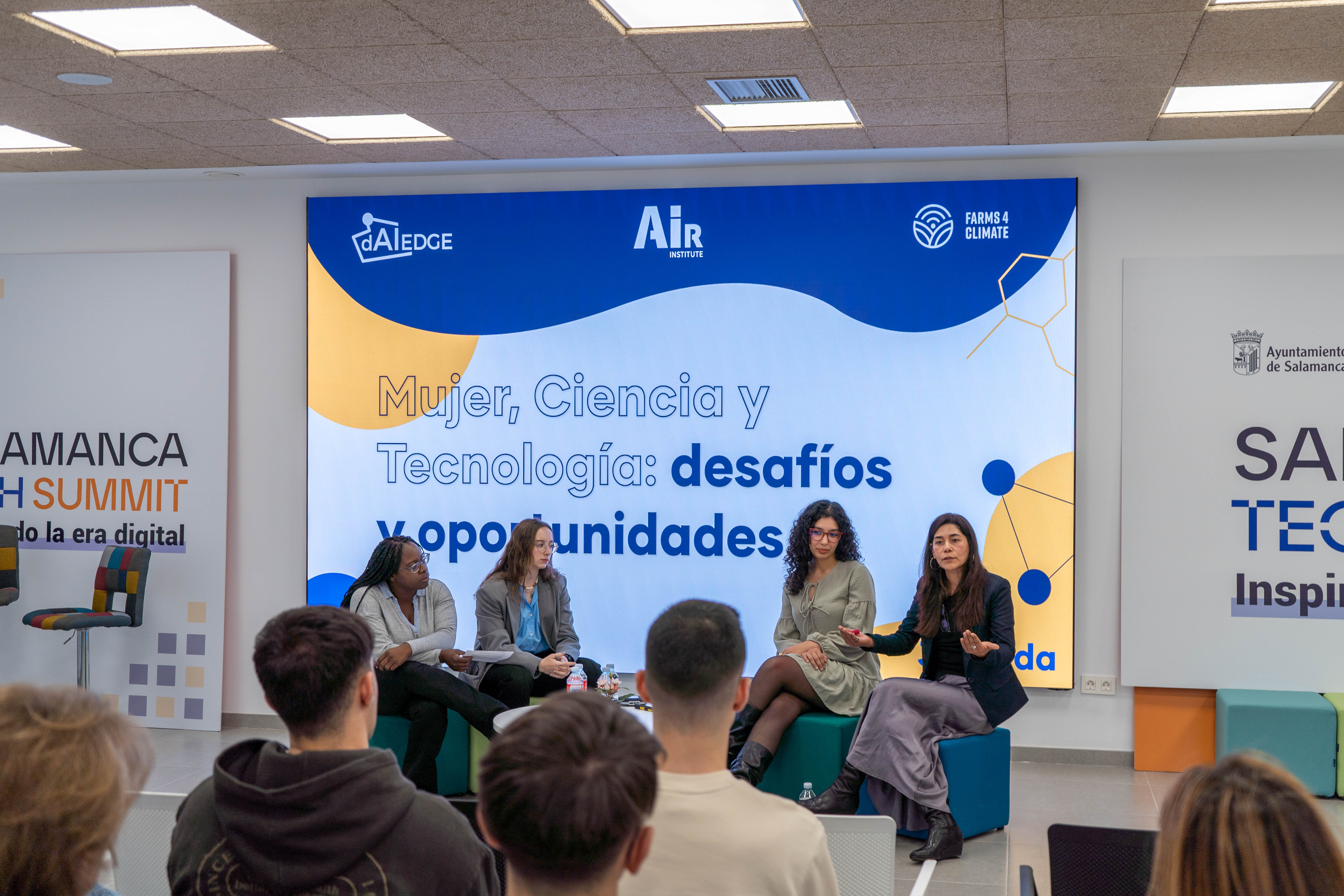AIR Institute successfully hosts "Women, Science and Technology: Challenges and Opportunities"
AIR Institute recently hosted the event "Women, Science and Technology: Challenges and Opportunities", held in recognition of the International Day of Women and Girls in Science. This occasion served as a moment to reflect on the role of women and future generations in research and the technology sector.
According to the "Gender Digital Divide" report (2023), published by the Spanish National Observatory of Technology and Society, "The widest gap in university studies is found in computing degrees, where only 13.5% of graduates are women. As a consequence, fewer than 20% of STEM-qualified professionals in Spain are women. On a global scale, this figure drops to less than 30% of researchers worldwide."
In response to this reality, AIR Institute provided a platform for its female colleagues to share their experiences, whether in leading technology projects or engaging with the technical aspects of computing.
The event began with a welcome address from AIR Institute’s Deputy Director, Carmen Losada, who introduced the event’s objectives and highlighted the institution’s commitment to promoting women's involvement in research and innovation.
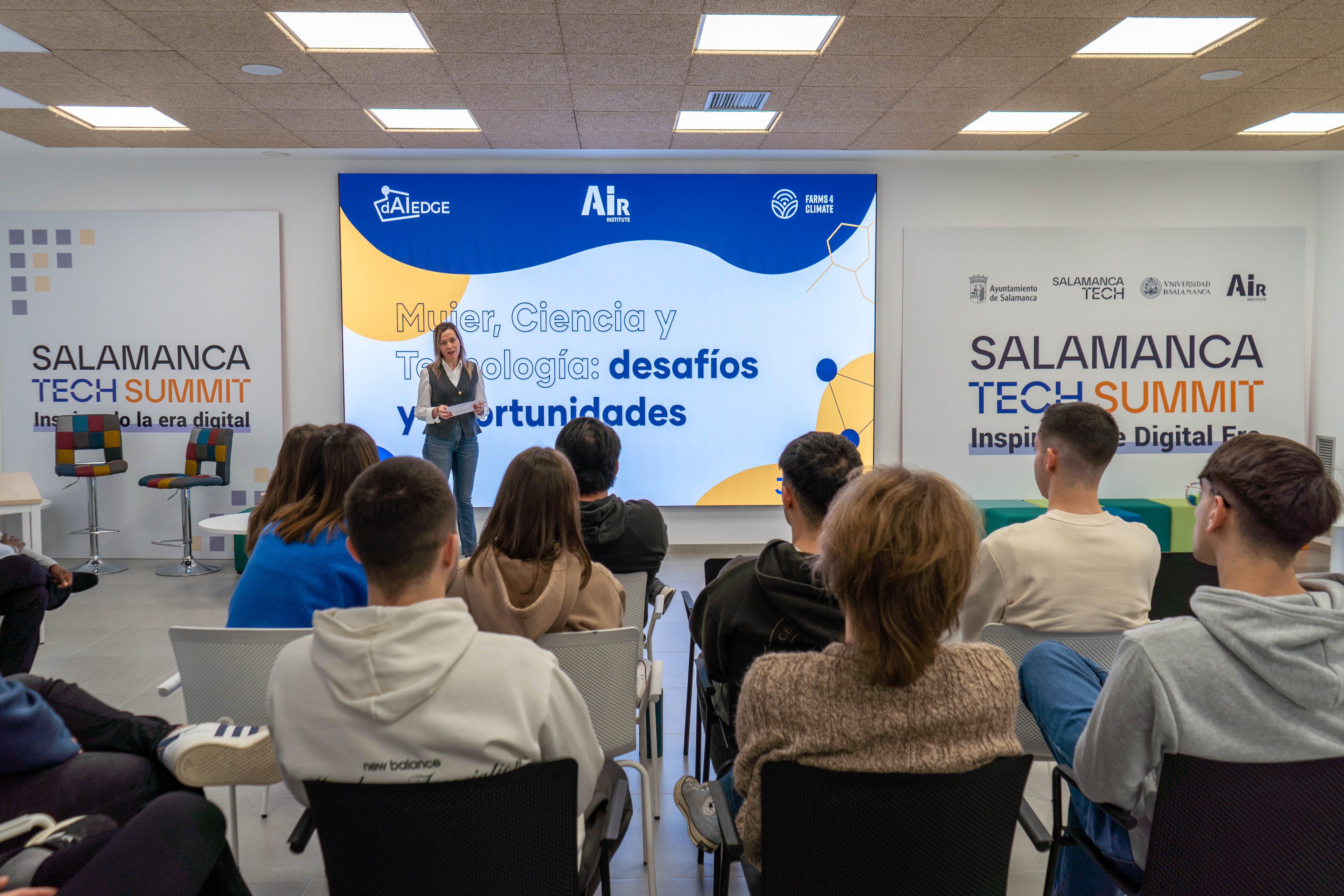
The first presentation was delivered by Manal Jammal, an electrical engineer currently working as a researcher and project coordinator. Among the initiatives she leads is dAIEDGE, a network of excellence focused on trustworthy, efficient, and scalable Artificial Intelligence at the Edge. With 36 partners from 15 countries, the project aims to position Europe as a leader in AI. Alongside detailing her involvement in the project, Manal shared insights into her academic journey and professional career.

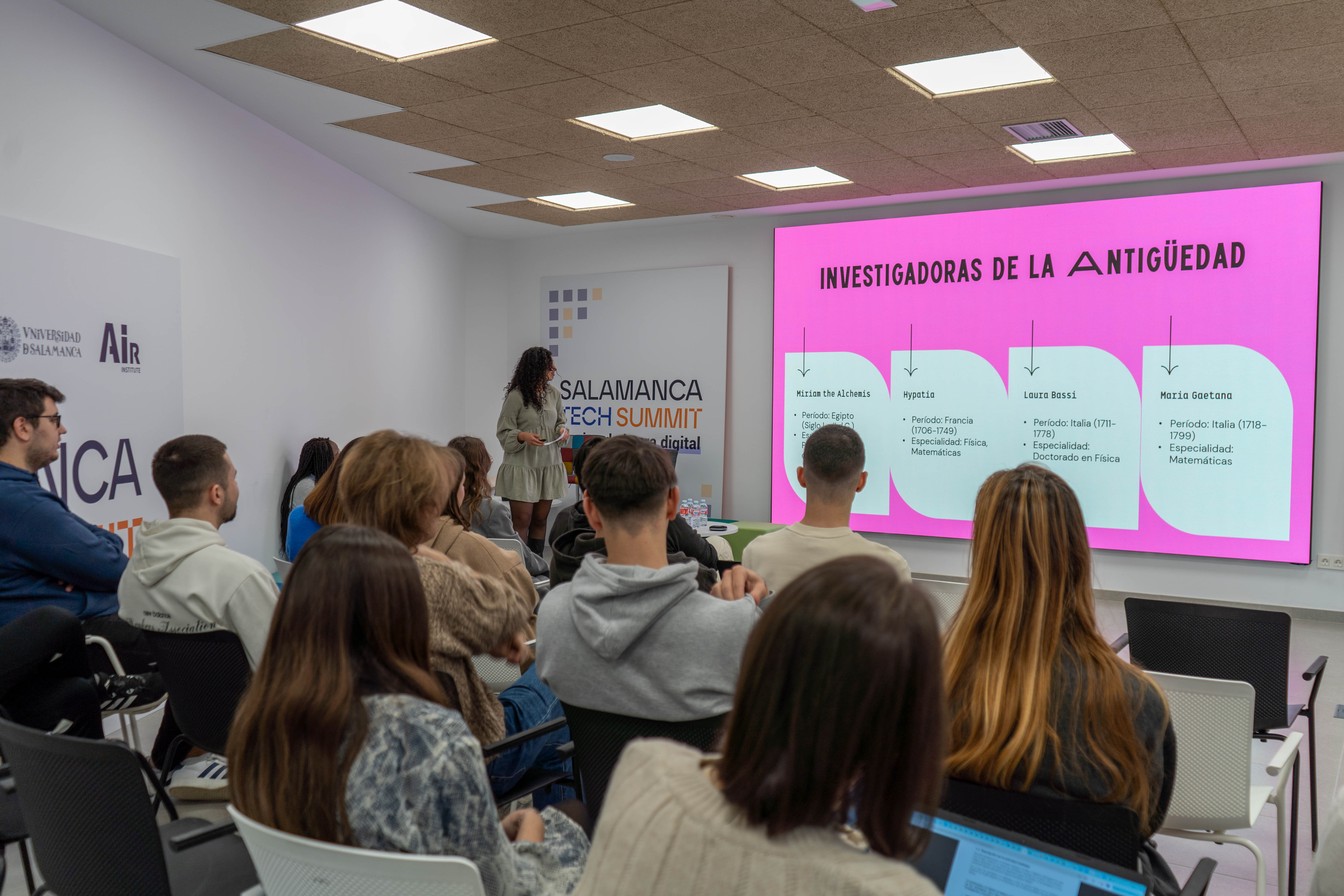
Following this, Carla González, a systems engineer and project manager in sustainability-focused technology initiatives, spoke about her work on Farms4Climate. This project explores regenerative agriculture and carbon farming, helping rural communities identify climate-friendly business opportunities suited to local conditions and farming practices. Carla shared her perspective on the significant role women can play in such initiatives, where technology intersects with environmental awareness, particularly in areas such as agriculture, soil conservation, and climate resilience.
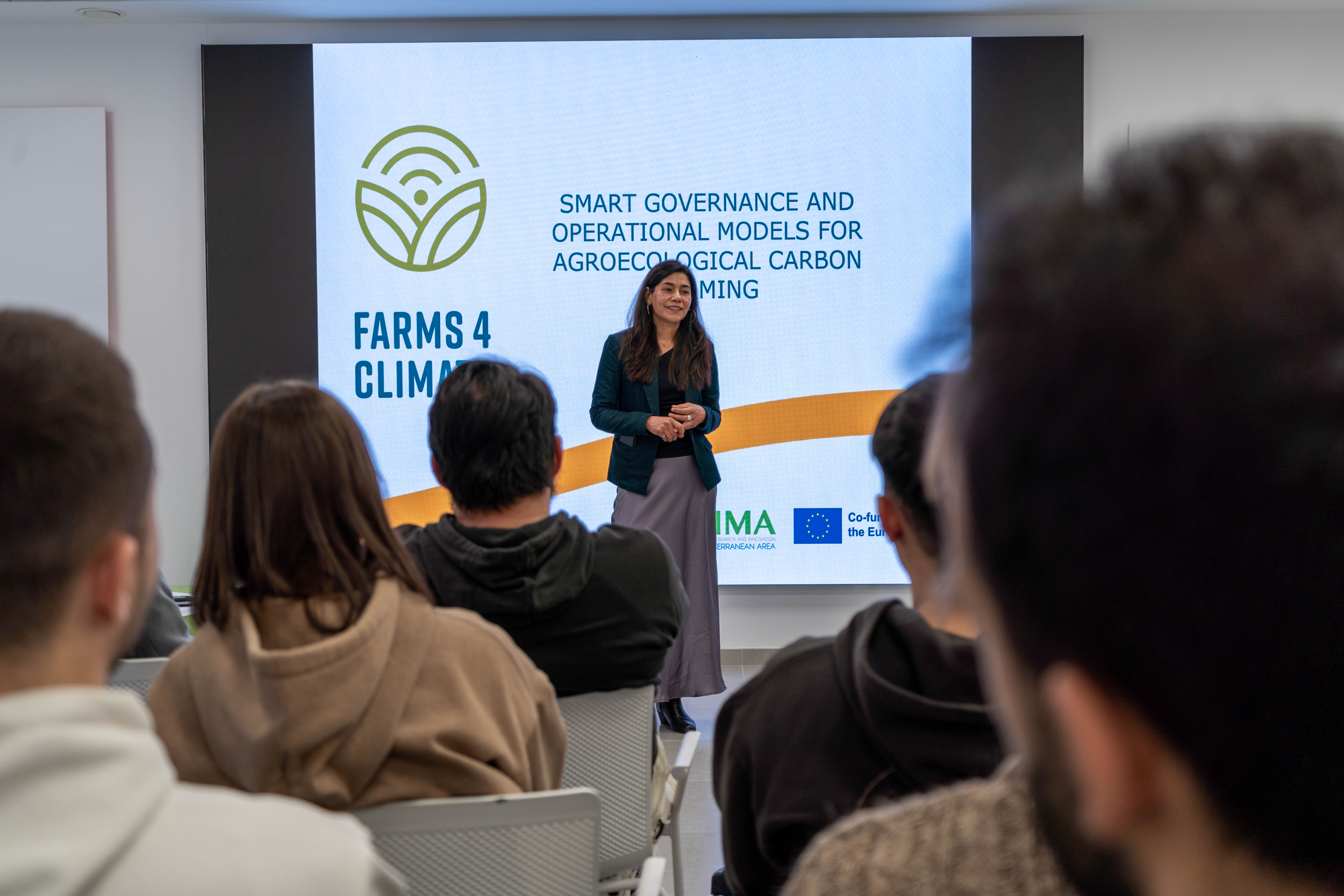
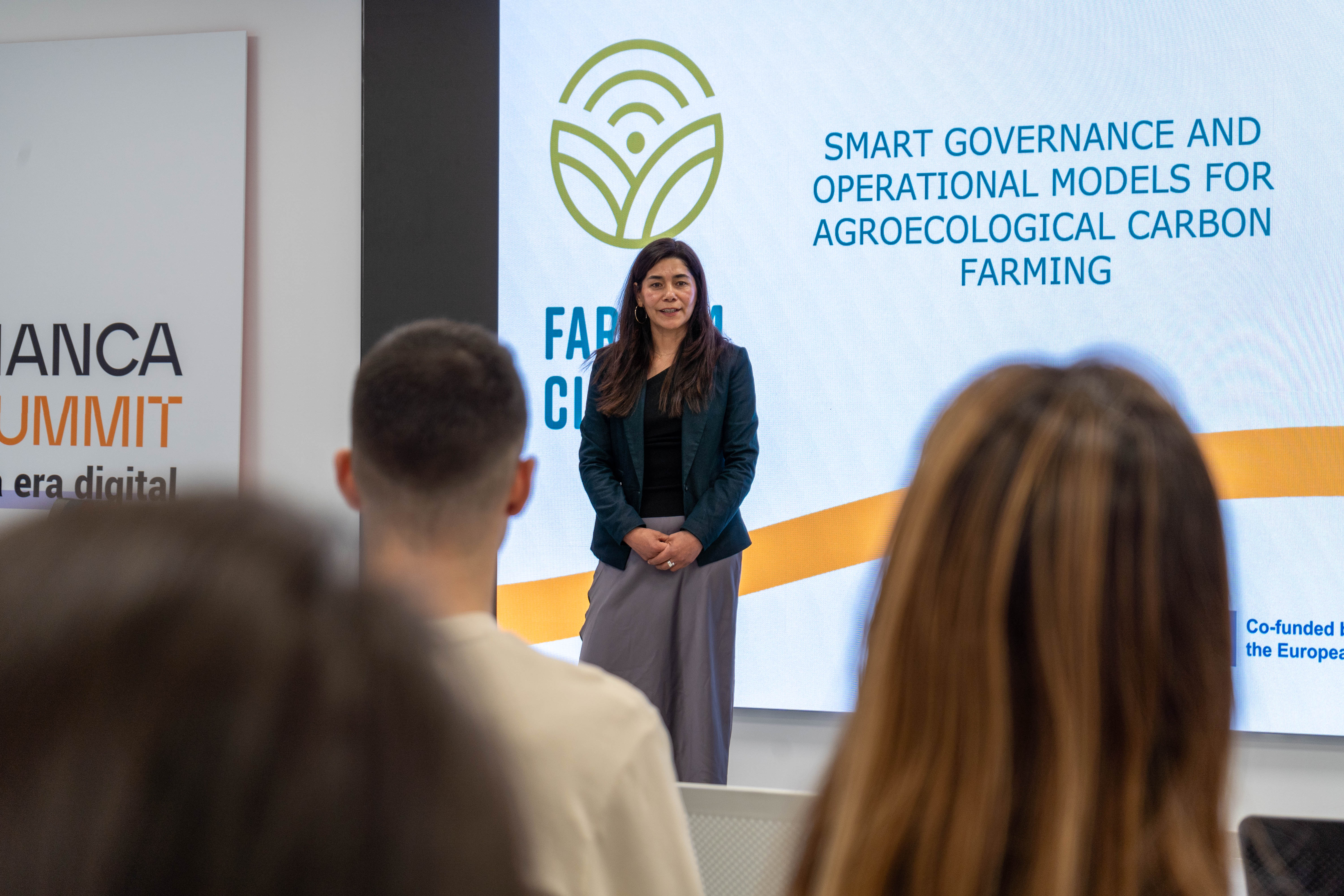
The next speaker was Lidia Alaejos, a computer engineer at AIR Institute, where she is part of the Blockchain team, focusing on user experience and interface design. Lidia discussed the role of education in breaking down barriers and stereotypes in technology. Drawing from her own experience, she highlighted the opportunities available to women by applying qualities such as empathy and sensitivity to the development of technological solutions designed for diverse users, including older adults, children, and individuals with special needs.
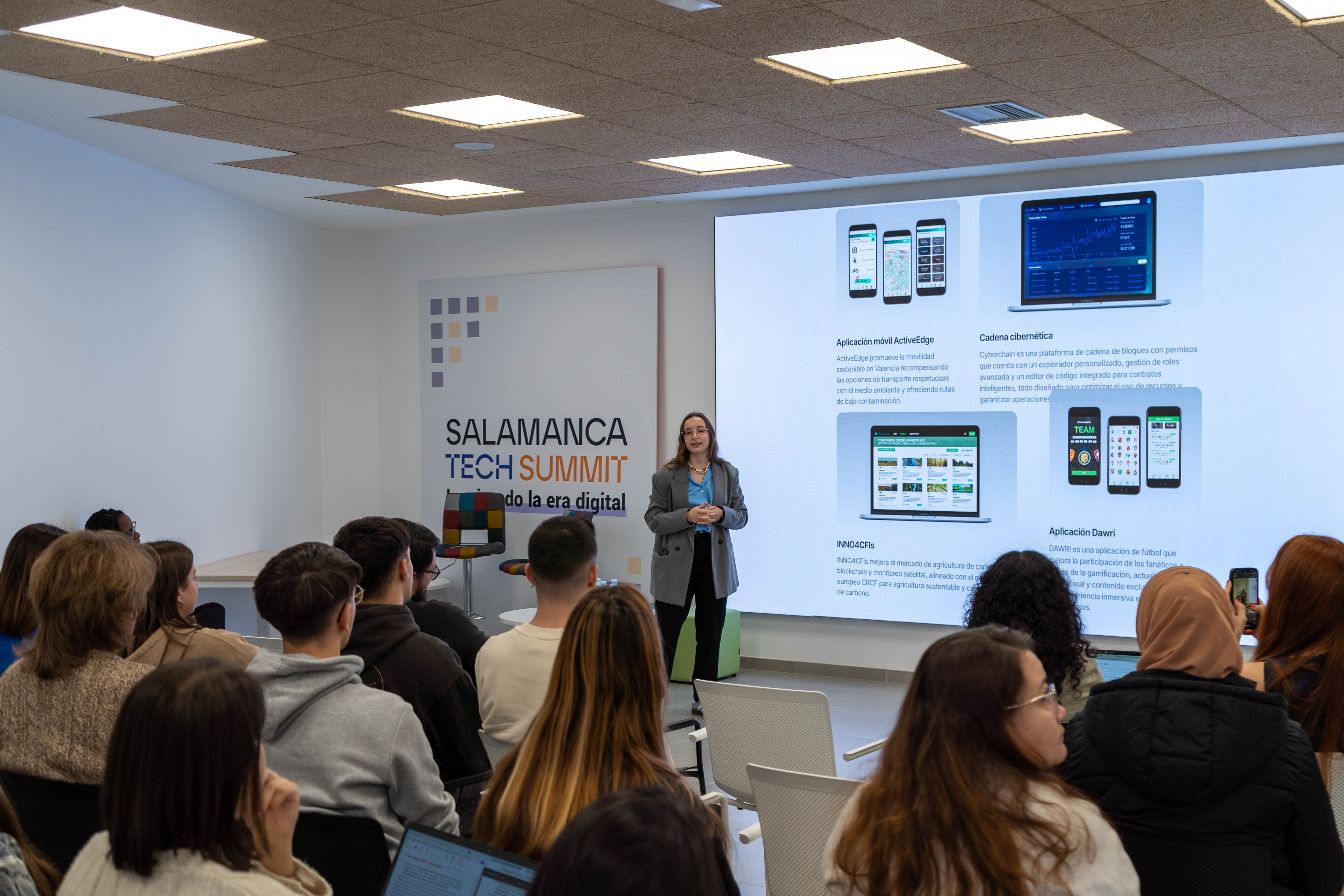
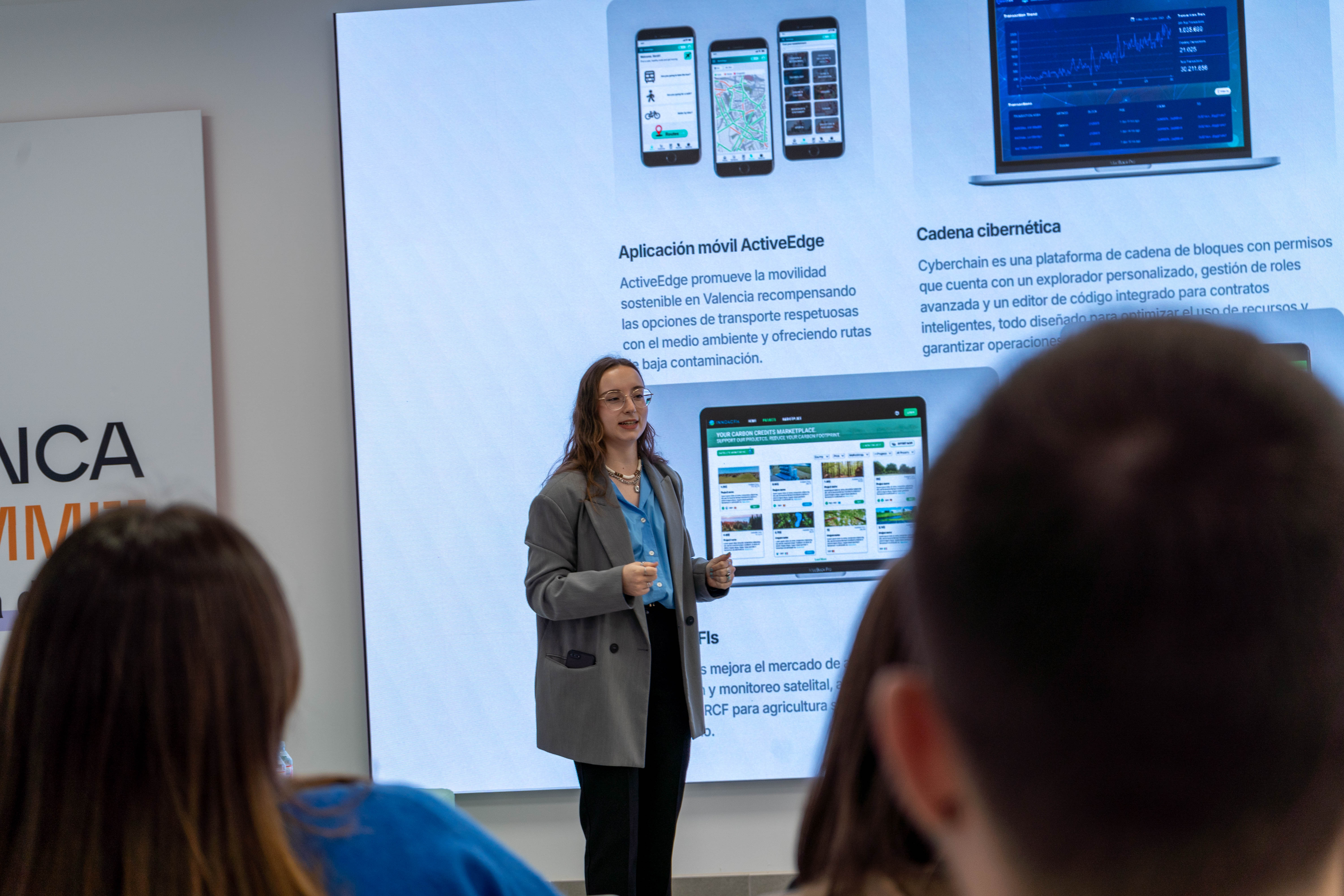
The event concluded with a roundtable discussion titled "Science and Technology with a Gender Perspective: Challenges and Opportunities." The panel explored the impact of the gender gap in research, strategies to promote inclusion in STEM, and the importance of support networks for women pursuing careers in science and technology. The speakers also shared words of encouragement for the next generation of girls and young women interested in these fields.
